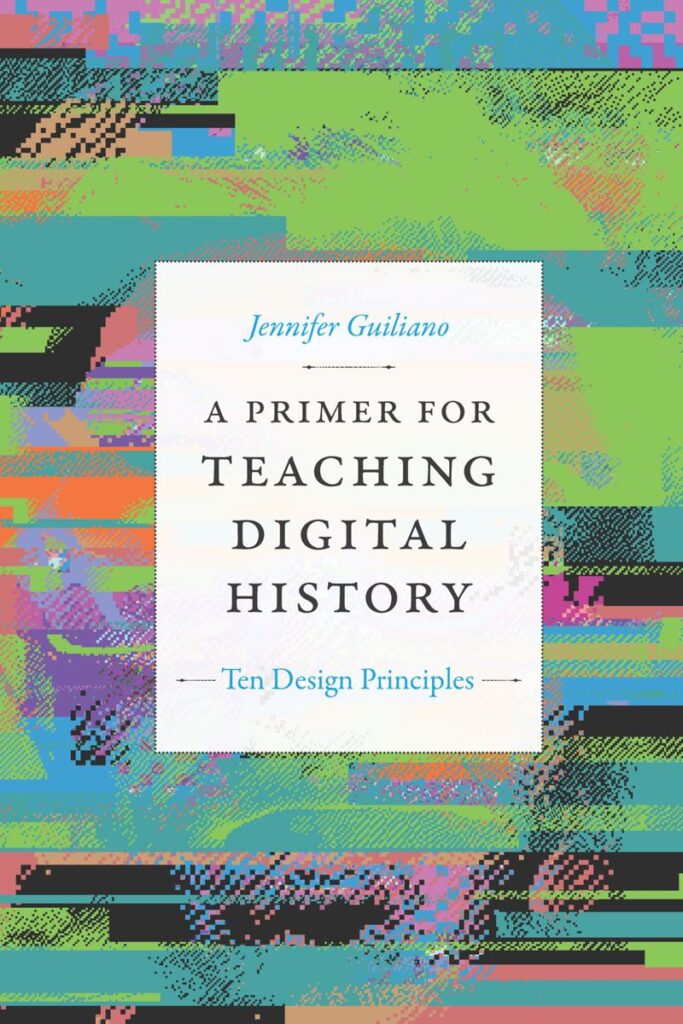
I was one of the unlikely many who caught Covid for the first time during the BA.5 wave this summer. While I was isolating at home, I had the chance to read A Primer for Teaching Digital History by Jen Guiliano, from the Design Principles for Teaching History series by Duke University Press. I had picked it up casually, but ended up being engrossed in it. It’s accessible, well-written, and full of great ideas—all of the things you want from a book on teaching.
Even though I’m not teaching digital history any time soon, I still found that Guiliano offered a lot of insights that I could apply to my teaching right now. Here are three of the big takeaways from A Primer for Teaching Digital History that I’ll be taking into my classroom this semester.
Student Collaborator’s Bill of Rights
This semester I’m building my graduate course on History, Memory, and the Public, which I teach on themes of race and memory in the United States, around a major public-facing project. A group of faculty from FIU and University of Miami have been working on a proposal for A People’s Guide to Miami, to be included in the A People’s Guide series from University of California Press, which sounded like just the right type of project for students in this course to help out with.
The students in my course will be writing A People’s Guide to Miami entries for possible use in both the book proposal and the final publication. I like to use projects like this one in my public history courses because it gives students a chance to apply what we’re reading to their work “in the field.”
However, before reading Guiliano’s book I hadn’t heard of the Student Collaborators’ Bill of Rights. This set of principles, which is itself based on the Collabortors’ Bill of Rights, describes what students should be able to expect in terms of compensation, credit, and control when participating in a project led by faculty. We will discuss both sets of principles early on in the semester, and, students will be able to opt out of contributing to the People’s Guide if they so choose.
The Importance of Peer Review
Guiliano points out that peer review is about more than students giving and getting feedback; it also fosters a sense of classroom community. However, I haven’t done much peer review in the past because, in my experience, students have a hard time giving each other useful feedback.
Guiliano offers a couple of solutions for this. One is to provide student peer reviewers with a checklist of assignment requirements. Another is to ask student peer reviewers what they would do differently rather than asking them to assess a peer’s work in terms of its quality.
With these strategies in mind, I’m asking students to turn in a draft of their People’s Guide entry in early November for peer review, so that they can read one another’s work, get some valuable feedback, and make revisions accordingly by the end of the semester. And of course assessing one another’s work will also help students to better understand the assignment for themselves.
Getting Better is What Matters
When we talk about pedagogy, whether it’s in a faculty workshop or in a blog post, we’re often talking about the very best version of our teaching. I know that I can find this to be kind of discouraging, because it sounds like everyone else is brilliant in the classroom, whereas all I can often think about are the things I could have done better or differently. And sure enough, while reading A Primer for Teaching Digital History I thought a lot about my teaching missteps in the past.
That’s why I was grateful that Guiliano ended her book this way: “Don’t forget that what makes you a great teacher is your desire to continually improve your own pedagogy.”
This was so reassuring! It’s a good reminder that if you’re in the position to hear about how lots of other people are teaching, then you’re probably doing something right yourself, even if that right thing is just to get a little bit better at it.
